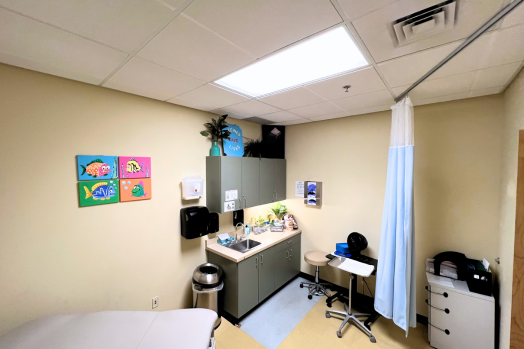Mpox vaccines available at Public Health Clinic amidst new cases
A small number of mpox cases, formerly known as monkeypox, are confirmed in Mesa County. The local disease surveillance team is working collaboratively with local health systems and the Colorado Department of Public Health and Environment (CDPHE) to identify and limit exposure to others.
MPOX BACKGROUND
Cases of mpox have decreased in Colorado since the height of an outbreak in August 2022. The last confirmed local case of mpox was in June 2022.
Mpox is not a sexually transmitted disease (STD) or infection (STI). It is a rare disease that can spread to anyone through close, personal, often skin-to-skin contact with someone who is infected. Though less likely, it can be spread by touching objects or fabrics used by someone with mpox such as bed linens, towels, or unwashed clothing. It can also be spread through respiratory droplets or oral fluids particularly with close contact for a long period of time. It cannot be spread through casual conversation or walking by someone with mpox.
It begins with flu-like symptoms and develops into a painful rash. A rash that can look like pimples or blisters may appear on the face, inside the mouth, and on other parts of the body. It is rarely fatal. Most people recover in two to four weeks.
MPOX VACCINE
People who have been exposed to mpox or who are at high risk for exposure can get vaccinated as a preventative measure. According to CDPHE, examples of being high risk include anyone who has had close contact with someone who has mpox, anyone who has multiple or anonymous sexual partners, was diagnosed with gonorrhea or syphilis in the past six months, or is living with HIV.
The Centers for Disease Control and Prevention (CDC) recommends vaccination with two doses of
JYNNEOS vaccine administered 28 days (four weeks) apart for people who are at risk for mpox infection.
The JYNNEOS vaccine is available at no cost from Mesa County Public Health.
ADDITIONAL WAYS TO REDUCE RISK
People should talk with their close contacts about any mpox symptoms and be aware of any new or unexplained rash or lesion on either of their bodies. Meeting with known partners can help reduce risk, and having fewer sexual partners can reduce likelihood of exposure.
ADDITIONAL RESOURCES
Reproductive health is important. When it comes to prevention and treatment of infections and disease, information is powerful. The experts at the Public Health Clinic help people make informed decisions about their reproductive health.
We offer confidential services including:
- Testing and treatment for sexually transmitted infections (STI), such as syphilis, chlamydia, and gonorrhea.
- Mpox and HPV vaccines.
- Free and reliable pregnancy testing in a private space.
- Birth control and birth control counseling. Our staff will work with you to find a birth control method that is right for you.
Visit our website to learn more about these services. We accept all major insurance plans and offer programs for those without insurance. Call 970-248-6900 to schedule an appointment.
Media Inquiries, contact:
Sarah Gray
Communications Specialist
970-697-4611

